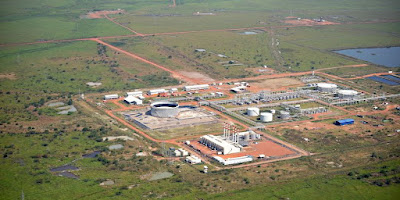NOTE from Sudan Watch Editor: I cannot vouch for the accuracy of the following report and a tweet outlining 14 articles in the political agreement between Gen. Burhan and PM Hamdok signed on Sunday 21 Nov 2021.
Here is a full copy of a report at The Eastern Herald www.easternherald.com
By Arab Desk - Dated Sunday 21 November 2021
Sudan… The terms of the political agreement between Al-Burhan and Hamdok (framework)
On Sunday [21 Nov 2021], the Commander-in-Chief of the Sudanese Army, Abdel Fattah Al-Burhan, signed a political agreement with Prime Minister Abdullah Hamdok; With the aim of ending the crisis that the country has been going through for about a month, in the wake of intense international pressure and continuous demonstrations calling for civilian rule.
The agreement, whose signing ceremony was attended by a number of military and political leaders, included 14 articles, as follows:
1- Emphasis on the constitutional document of 2019 and amended in 2020, and that it is the main reference for completing the transitional period.
2- The necessity of amending the constitutional document by consensus to ensure broad political participation, except for the dissolved National Congress Party (the party of former President Omar al-Bashir).
3- The partnership between civilians and the military is the guarantor of the stability and security of Sudan, based on an agreement to implement the partnership in a spirit and confidence, and a commitment to form a civilian government of independent competencies (technocrats).
4 – That the Sovereignty Council be the supervisor of the implementation of the tasks of the transitional period, without direct interference in the executive work.
5- Ensuring the transition of the transitional authority on time to an elected civilian government.
6- Managing the transitional period according to a declaration and a political framework in partnership between the military and civilians, the native administration, the resistance committees, the forces of the living revolution, the youth and women sectors, and the Sufi orders.
7- Conduct an investigation into the events that occurred during the demonstrations, including deaths and injuries of civilians and military personnel.
8- Implementation of the Juba Peace Agreement and its entitlements, and the annexation of non-signatories.
9- Completing all the institutions of the transitional authority by forming the Legislative Council and the judicial organs from a constitutional court, appointing the chief justice and the attorney general, and completing the establishment of the rest of the negotiations and other transitional institutions.
10- Starting a broad dialogue with all political and societal forces and the forces of the live revolution establishes the establishment of a constitutional conference.
11- Re-work of the committee to remove the dismantling of the 1989 system and review its performance in the previous period.
12- The release of all political detainees.
13- Work to build a unified national army.
14- Annulment of the decision of the Sudanese army chief, Abdel Fattah Al-Burhan, to relieve Prime Minister Abdalla Hamdok.
Photo: Sudanese Prime Minister Abdalla Hamdok and Sudanese Army Chief Abdel Fattah al-Burhan (File Photo/AP) © The Eastern Herald
View original: https://www.easternherald.com/2021/11/21/al-burhan-hamdok-political-agreement/
Sudan: Quick summary of 14-point Political Declaration circulating as a photo on WhatsApp
Here is a copy of a tweet by Eddie Thomas @eddiethomas88 dated 4:14 pm · 21 Nov 2021:
Quick summary of 14-point #PoliticalDeclaration circulating as a photo on WhatsApp. Declaration brings PM #Hamdok back into #Sudan govt.
1. Constitutional Declaration of 2019, as amended in 2020, is ‘fundamental reference’ for completing transition, with special attention to East
2. Constitutional Declaration needs amendment in order to ensure participation of all political forces apart from the dissolved National Congress Party.
3. Civilian-military partnership necessary for stability, commitment to form civilian technocratic govt.
4. Oversight role for civil-military Sovereignty Council transition in line with Art.8 of Constitutional Declaration, no implementation role.
5. Guarantee of transition to civilian rule ‘on time’ (the photo has actual date, July 2023, printed and then crossed out in pen)
6. Transition will be administered in line with a political declaration setting out partnership between civil forces, military structure, Native Administration chiefs, resistance committees, revolutionary forces, youth and women sectors, Sufi tariqas
7. All political prisoners to be released.
8. Implementation of Juba Peace Agreement.
9. Speed up completion of transitional institutions including legislature, constitutional court, Chief Justice and prosecutor, formation of other transitional commissions etc
10. Initiation of dialogue political, social and revolutionary forces to set up constitutional convention.
11. Reestablish committee to dismantle Bashir regime, review its performance to date, support it with qualified staff, committee to hear appeals against its decisions
12. Investigation of civilians and military deaths and injuries during protests.
13. Build unified national army.
14. Repeal of decree of commander in chief dismissing PM Hamdok.
View original:
https://twitter.com/eddiethomas88/status/1462454414699118594





